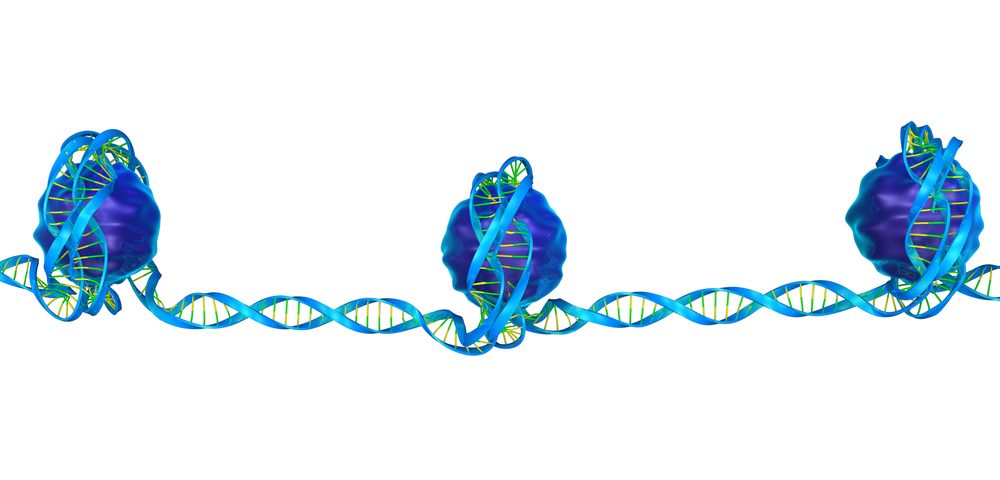A protein called ZMYND8 might be able to block genes involved in prostate cancer metastasis, according to research conducted at The University of Texas MD Anderson Cancer Center that helps scientists better understand how prostate cancers become metastatic and invade other tissues, and how they might possibly prevent that process.
“These findings are important as cancer metastasis is a complicated process and is both devastating and clinically challenging,” Dr. Min Gyu Lee, the study’s senior author, said in a news release.
In their study, “ZMYND8 Reads the Dual Histone Mark H3K4me1-H3K14ac to Antagonize the Expression of Metastasis-Linked Genes,” published in Molecular Cell, researchers used both cell lines and mouse models to identify ZMYND8 as a “reader” of genetic regulatory proteins called histones.
Histones package and order the DNA into structural units called nucleosomes, regulating which genes will be expressed and which ones will be silenced. Histone modifications such as acetylation and methylation regulate this process. Alterations in acetylation and methylation have often been linked to cancer because they modify gene expression.
These alterations are mediated by proteins called histone “readers.” Lee and colleagues identified ZMYND8 as a reader for histone marks H3K4me1 and H3K14ac, which are both tied to genes involved in cancer metastasis.
In addition, the team showed that ZMYND8 is able to interact with a histone mark “eraser” called JARID1D, meaning it can suppress the expression of genes involved in metastasis.
“This study revealed a previously unknown metastasis-suppressive mechanism in which ZMYND8 counteracts the expression of metastasis-linked genes by reading dual histone marks H3K4me1 and H3K14ac and cooperating with JARID1D,” Lee said in the release.
Lee and his team previously found that levels of the JARID1D protein were lower in metastasized prostate tumors compared to primary prostate tumors, or non-metastasized tumors. The finding that ZMYND8 interacts with JARID1D emphasizes the idea that these two proteins may be playing a role in cancer metastasis, and could be targeted to inhibit the spread of the cancer to other tissues.

